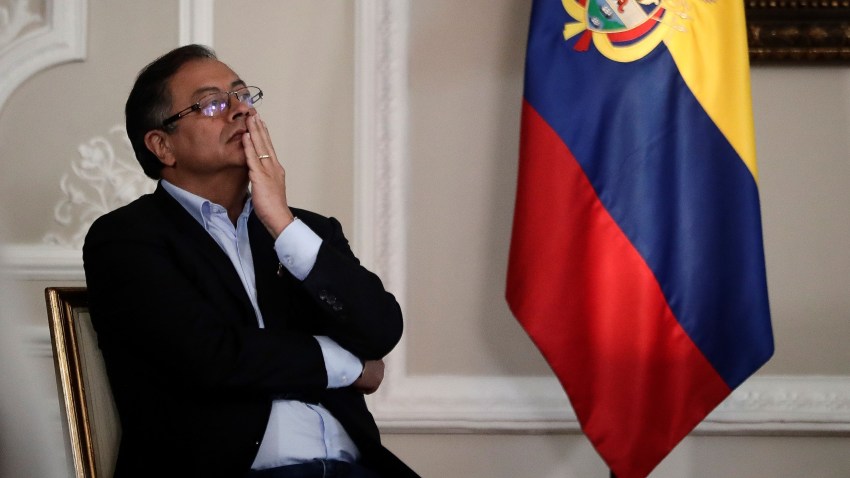As he nears the end of his first year in office, and with local elections just around the corner, Colombian President Gustavo Petro can boast of few major political victories. His vision for “Total Peace” in a country long wracked by conflict has suffered serious setbacks, and his most ambitious political reforms have been stymied.
Perhaps most worryingly for his future prospects, in the past 10 months, Petro’s coalition majority in Congress has fractured, while his Cabinet has undergone two shakeups. Perhaps not surprisingly, his approval rating has dropped 20 points, to just over 30 percent. Having won election as the first leftist president in Colombia’s modern history promising sweeping economic and political reforms, Petro has instead encountered roadblocks and disappointment.
A former rebel once imprisoned by the country he now leads, Petro surprised many observers after assuming the presidency last August by incorporating the more establishment Liberal and Conservative parties to build a majority coalition in Congress.

